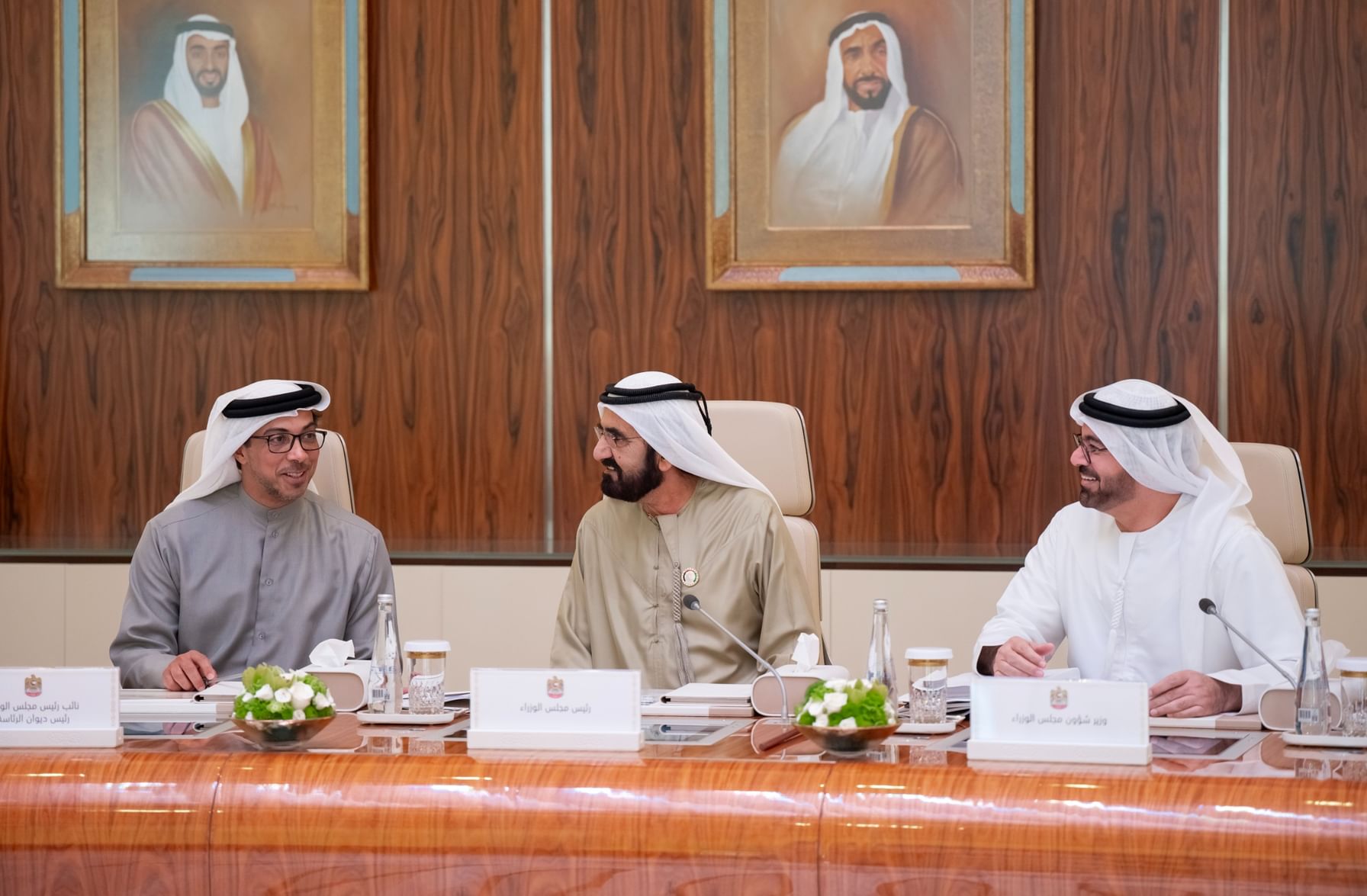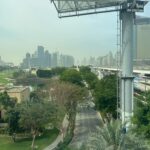His Highness Sheikh Mohammed bin Rashid Al Maktoum, Vice President, Prime Minister, and Ruler of Dubai, presided over the latest UAE Cabinet meeting held at Qasr Al Watan in Abu Dhabi. Joined by senior federal leaders, including H.H. Sheikh Mansour bin Zayed Al Nahyan, H.H. Sheikh Maktoum bin Mohammed bin Rashid Al Maktoum, H.H. Lt. General Sheikh Saif bin Zayed Al Nahyan, and H.H. Sheikh Abdullah bin Zayed Al Nahyan, the Cabinet announced several strategic decisions aimed at enhancing governance, development, and innovation.
Among the most notable announcements was the approval of the first integrated Regulatory Intelligence Ecosystem within the UAE Government—an initiative that represents a global breakthrough in smart governance. The newly established Regulatory Intelligence Office, operating under the General Secretariat of the Cabinet, will lead this effort in collaboration with federal and local authorities as well as the private sector.
In a statement following the meeting, His Highness Sheikh Mohammed bin Rashid Al Maktoum said:
“Today, I chaired the Cabinet meeting at Qasr Al Watan in Abu Dhabi, where we made key decisions to advance legislative processes. We approved the establishment of the Regulatory Intelligence Office within the Cabinet…”
He explained that the system would merge all federal and local laws into a single framework, using artificial intelligence to connect legislation with court rulings, executive procedures, and public services.
“The new system will allow us to track the daily impact of laws on our people and economy using large-scale data, and it will regularly suggest updates to our legislation,” he added.
This AI-powered ecosystem introduces a proactive, data-driven approach to legislative planning. It features a national legislative database that not only consolidates laws but also includes judicial decisions, government services, and field-level procedures. The system will monitor global regulatory trends in real-time, helping the UAE anticipate and adapt to international legislative developments.
“This new legislative system, powered by artificial intelligence, will change how we create laws, making the process faster and more precise. It will ensure that our legislative framework stands out, aligning our laws with the best global practices while staying true to the unique path of our rapid development.”
The Cabinet also approved the restructuring of the Emirates Council for Balanced Development, now chaired by H.H. Sheikh Theyab bin Mohamed bin Zayed Al Nahyan. The council, composed of high-level ministers and strategic leaders, will spearhead regional development projects to promote equitable growth across all emirates.
“During the meeting, we also approved the restructuring of the Emirates Council for Balanced Development, chaired by H.H. Theyab bin Mohamed bin Zayed Al Nahyan…” said His Highness.
Other key topics covered included the “Make it in the Emirates” Forum, a national initiative to strengthen industrial growth, which has already contributed AED 210 billion to the UAE’s GDP—a 59% rise since 2020.
“We also discussed the Ministry of Industry and Advanced Technology’s preparations for hosting the ‘Make it in the Emirates’ Forum…”
In the energy sector, the Cabinet gave the green light to the launch of the Global Alliance for Energy Efficiency, reinforcing the UAE’s environmental commitments made during COP28.
“We approved the launch of the Energy Efficiency Global Alliance, which was announced during the UAE’s hosting of COP28…”
Environmental initiatives such as the “Plant the Emirates” campaign were also reviewed. The campaign has planted over 450,000 trees and distributed more than 590,000 seedlings, reflecting strong community involvement and youth participation.
The Cabinet examined updates to the national tax system, highlighting its growing impact on economic resilience. His Highness praised the teams responsible for enhancing fiscal policy, noting global recognition for the UAE’s efficiency and transparency in tax administration.
“We discussed the progress of the UAE’s tax system, which supports financial sustainability and strengthens our global competitiveness…”
In international affairs, the Cabinet approved 44 new agreements in diverse sectors and initiated negotiations on 30 additional bilateral investment protection agreements.
“Today, we also approved 44 international agreements in economic, developmental, and governmental fields…”
The meeting also touched on strategic developments in housing, with over AED 7.5 billion in financing approved for the Sheikh Zayed Housing Programme, surpassing its initial targets.
The National Sports Strategy, National Autism Policy, and National Strategy for Cultural and Creative Industries also featured in the session, with notable achievements in sports participation, early autism detection, and creative sector development.
In line with its commitment to enhancing public benefit, the Cabinet adopted the Public Benefit Entities Classification Guide, establishing clearer frameworks for non-profit and community-based organizations in the UAE.
Additionally, Cabinet members reviewed updates related to space resources legislation, anti-money laundering measures, and cultural engagement in schools, underscoring the UAE’s holistic approach to national advancement.






